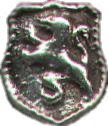I'm not normally into the revenge type stories that a lot of modern films use, with two notable exceptions: Breakdown and Man On Fire. Breakdown because it has the brilliant JT Walsh and Kurt Russell facing off against each other. Man On Fire uses several tricks to overcome the usually revenge-movie traps.
First, the lead character Creasy (Denzel Washington) isn't particularly likable at first. But he warms and begins to like Pita, the girl he's hired to protect from would-be kidnappers. Secondly, the kidnap of Pita and subsequent events leave no room for forgiveness in Creasy's mind. So as the audience, you don't feel any sympathy for them. Everything that happens to them is justifiable because they are the vilest people who ever walked the earth. And third, the film pulls away from the nastier stuff when Creasy is attacking the kidnappers, pulling back to wide shots with loud music. It's kind of the film equivalent of closing your eyes, sticking fingers in your ears and going "Nah nah nah I'm not listening!"
There are a lot of jump-shots, where the camera jerks aside and the image flashes. Normally I don't like these, but here they are used to great effect, to illustrate in a visible way Creasy's state of mind. When he is calm, the shots go away. When he gets angry, they return. It's a clever effect, even if it is seriously over-used and often used badly these days.
Very cop out ending, I thought. Too much
